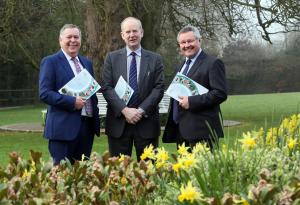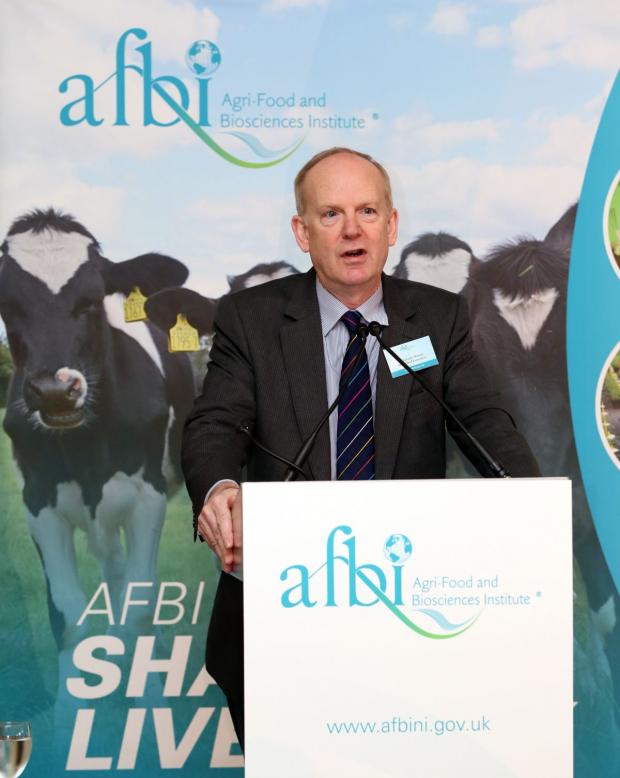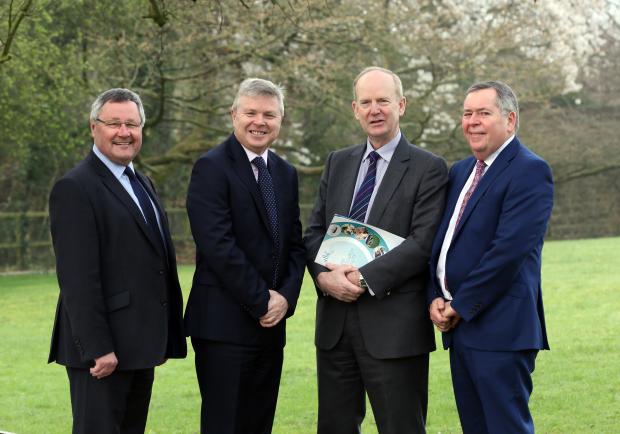New mobile devices and advances in wearable technologies will enable farmers to substantially increase output and profitability over the coming decade, according to the Agri-Food & Biosciences Institute’s ‘Science Outlook’ conference.

The all-day conference ‘AFBI Science: Shaping Livestock Farming for 2030’ heard how remote sensing and a range of other new technologies are set to reveal unprecedented insights for livestock farmers in areas such as hoof health, milk content, herd fertility and feed intake within the individual animal.

The conference, which took place at The Dunadry Hotel on Tuesday (March 28), attracted international experts from New Zealand, the Netherlands, England and the Republic of Ireland.
Speakers included Dr Theun Vellinga of Wageningen University in the Netherlands; Professor Ian Yule of Massey University in New Zealand; Joe O’Flaherty Chief Executive of Animal Health Ireland; and Tim Bennett, Deputy Chair of the Food Standards Agency Board and Chairman of the UK Centre of Innovation & Excellence in Livestock (CIEL).
AFBI speakers included Professor Robin Skuce, Dr Debbie McConnell, Dr Conrad Ferris, and Professor John Davis.
One of the key talking points at the conference was the need to reduce the impact of farming systems on the environment. Dr Theun Vellinga highlighted the current position in the Netherlands where dairy cow numbers were being reduced by up to 100,000 cows in order to reduce phosphorus losses to waterways.
Dr Conrad Ferris from AFBI highlighted that whilst good progress had been made in reducing phosphorus loss to waterways in Northern Ireland, we needed to build on this progress locally. Dr Ferris also indicated that further significant progress could be made by targeting interventions at the relatively small area of land that had a high risk of phosphorus run off.
In the subsequent discussion, speakers highlighted the opportunity that would exist post-Brexit to develop specific policy measures targeted at the relatively small land area that posed the greatest risk of phosphorus loss.

He added: “One of the biggest challenges for farmers is how to combine and interrogate datasets in order to get really useful information about how to improve their businesses. Our conference has provided practical advice to farmers on how they can prepare for this, and the many other challenges, that lie ahead.”
Also at the conference, AFBI launched a booklet highlighting examples of where AFBI research has made a significant industry impact including: innovative online carcase benchmarking tools for improving the profitability and competitiveness of cattle, sheep and pig production; evidence for increasing EU fish quotas; and successful applications for derogations from the Nitrates Directive.
PDF's of the presentations can be seen below:
- Joe O'Flaherty - Animal Health Ireland
- Professor Robin Skuce - AFBI
- Dr Debbie McConnell - AFBI
- Dr Theun Vellinga - Wageningen University
- Dr Conrad Ferris - AFBI
- Professor John Davis - AFBI
All presentations can be viewed on the AFBI YouTube Channel
Notes to editors:
AFBI carries out high quality technology research and development, statutory, analytical, and diagnostic testing functions for DAERA and other Government departments, public bodies and commercial companies.
AFBI's Vision is “AFBI’s vision is to use scientific excellence to advance the local and global agri-food sector.
All media enquiries to AFBI Press Office
Latest news
- AFBI issues Nematodirus warning – Spring 2025 11 April 2025
- Managing Nature Based Risks to the UK Economy and Opportunities for Green Finance 08 April 2025
- AFBI Hillsborough host AERA committee 27 March 2025
- The Omics Days Conference 27 March 2025
